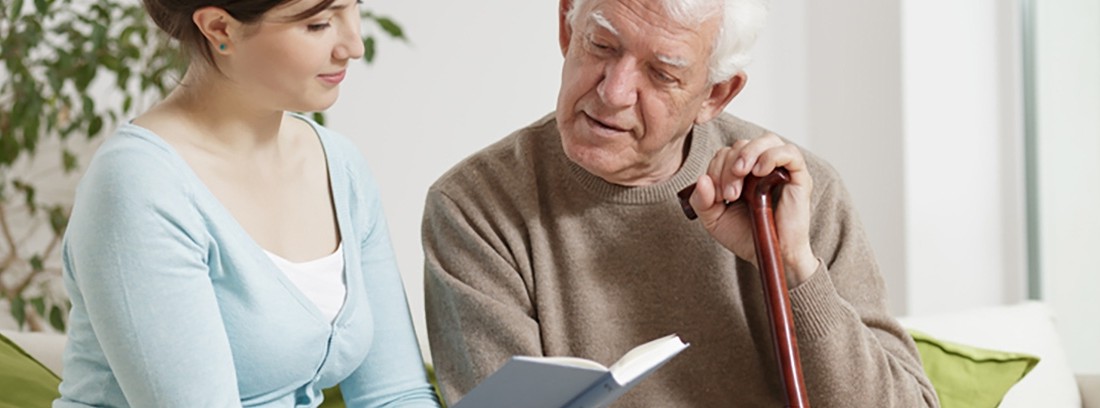Nov 14 / 2021
Coexistence and care of elderly people with visual difficulties II
 WHAT YOU NEED TO KNOW ...
WHAT YOU NEED TO KNOW ...
- At home it is important not to change objects or leave them on the road or place rugs without prior notice.
- When we speak with a blind person we have to let them know that we are there and if there is someone else we have to introduce them as well.
- People who lose their vision often have a hard time adjusting to their new situation and fall into depression.
Home care
- Do not change the position objects, the order for a person with visual difficulties is essential, since memory is a great help for them. In case of change, it must be notified.
- Avoid leaving obstacles along the way.
- At home when we change furniture, inform you.
- Do not place rugs or small rugs on the floor, avoid slipping.
- Do not leave the doors half open, as it is easier to trip over them.
- painting or sticking glow tape on locks, sockets, light switches, etc.
- The phone must have large, dark numbers.
- Put bright colors in bathrooms, stair nosings, doors and windows for more contrast.
- The dishes must have smooth finishes, without texture or design.
- At the table you must inform where the utensils are, for example: “the glass is on the left, in front of you” or “there is an ashtray nearby, on the right”. We can also tap on the object in question so that the blind person can locate it by sound.
- Explain how the different foods are arranged on the plate, for example, using the positions of the clock: rice is at twelve, fish at six, salad at nine.
- If the drink is served, it is important not to overfill the glass or glass, and also the place where it was placed must be indicated. If you give the glass in your hand, you have to say where you can put it when you have finished drinking it.
- Allowing blind or visually impaired people to touch objects, faces, etc. It is the only way to know your environment.
Dealing with people with little or no vision
- When interacting with a blind person it is important to let them know that we are there; We have to introduce ourselves with the name, we must not pretend that they recognize our voice at first. If there is someone else with us, we have to present it as well.
- When we leave we will say goodbye verbally, the parting ones are no longer useful. A blind person always expects a spoken answer: a smile or a gesture is not enough.
- When we speak, we must not change the way we express ourselves; We should not feel guilty for using expressions such as "you see ..." or "look at this." In general, the blind person uses such phrases or words.
- We must not speak louder, but we must vocalize correctly, since they cannot rely on gestures to follow the direction of the conversation.
- If there are several people in the conversation, to emphasize that we are addressing the blind, we can say their name, or touch their arm lightly.
- If we believe, in a meeting or on the street, that a blind person may need our help, it is best, before helping directly, ask if it is necessary. If they accept it, they will tell us how we can provide it.
- To guide a blind person through a route, we will place his hand on our elbow (the fold) or even the shoulder, so that the hand will inform about the movements of our body along the route. We will not take him by the arm, but they have to lean on us.
- It is important to explain what we are finding along the way (“now there is a step, a door, escalators going up”, etc.).
- You have never distracted or pet a guide dog while doing your job. Nor will we catch or hinder the movement of a white guide stick.
- Older people who have lost their vision often have a hard time adjusting to their new situation. Depression is one of the obstacles they have to deal with and that we have to take into account when planning their functional rehabilitation.
- While the Braille language is being learned, or if its learning is not possible, we will have to read their correspondence, newspapers, magazines, books, etc. for them. We will do this by avoiding personal comments and vocalizing correctly.
- In the case of literature, it is becoming easier to find audiobooks: tapes or sound files with books read by professional actors.
- People who are visually impaired or blind are just people with the same wishes and rights as any of us. His world is the same as that of the rest of the people, but lived in a different way, with its means and faculties, often greater than we imagine.
(Updated at Apr 14 / 2024)